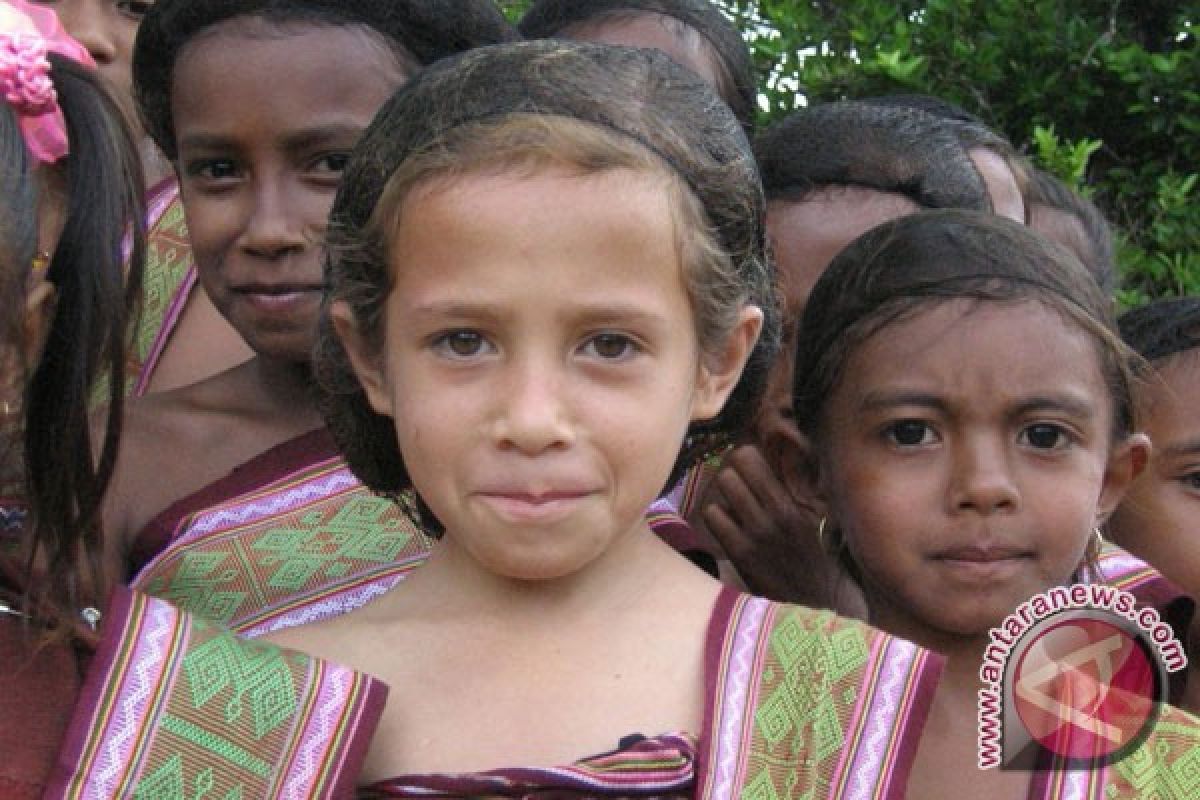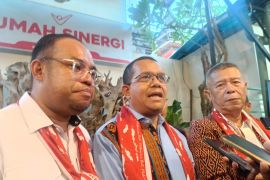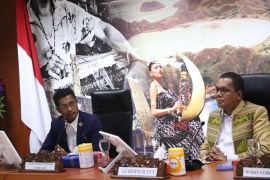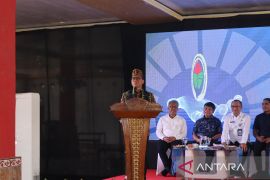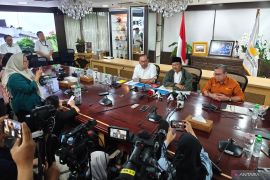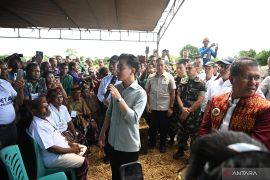Launched by East Nusa Tenggara Governor Frans Lebu Raya on December 20, 2010 and implemented in early 2011, the program is credited with reducing poverty in the province from 27.5 percent of the population to 21.03 percent, as of the end of 2011.
With a population of 4.6 million and a poverty rate of 27.5 percent, East Nusa Tenggara is the second least developed province in Indonesia, with a human development index rate of 31 out of the 33 provinces.
But following the implementation of Anggur Merah (Red Wine), which stands for "Anggaran Untuk Rakyat Menuju Sejahtera" or "budget for the people to prosper," the poverty rate in the province dropped to 21.03 percent by the end of 2011.
In the light of this, East Nusa Tenggara Regional Development
Planning Board chairman Wayan Darmawan said in the provincial capital of Kupang on Friday that the Anggur Merah Independent Village Program was more likely to replace the National Program of Independent Rural Community Empowerment (PNPM-MPD).
PNPM-MPD is a program designed to quicken the reduction of poverty in an integrated and sustainable manner.
But Wayan said that when a National Coordination of Poverty Eradication team from the vice presidential office visited East Nusa Tenggara recently, it found that the Anggur Merah program was more useful in combating poverty.
According to Wayan, when the team visited a number of villages in the province where the Angur Merah program was being used, they concluded that the program was more useful in speeding up the local community`s economic self reliance than the PNPM-MPD program.
The Anggur Merah program was first implemented in 287 villages, or at least one village in each sub-district across NTT province, as each village received funds of Rp250 million from the regional budget to run a productive economic business.
Wayan noted that the funds were not expected to be paid back to the government, but would become operating capital for the villagers to run productive economic businesses.
"We have to be proud, however, that the Anggur Merah Independent Village Program will become a model for the central government in preparing the national economic empowerment programme that will take the place of the PNPM-MPD that will come to an end in 2014," Wayan said.
He noted that the program had a positive impact on the economy of the local villagers and was fully supported by a number of international institutions, including the Australian Agency for International Development (AusAID), World Vision Indonesia (WVI), United Nations Children`s Fund (UNICEF), United Nations Development Program (UNDP), Care International, and Australia-Indonesia Partnership for Maternal and Neonatal Health (AIPMNH).
"This program is widely supported and the six international institutions have so far expressed a readiness to make it a success," Wayan said, adding that starting in the 2012 to 2013 period, the AusAID would provide A$5 million to support a food security program that would be integrated with the Anggur Merah Independent Village program.
According to Wayan, the local government and the public were experiencing an unsteady food supply because of harvest failures due to climate change.
"We will continue to encourage international agencies to assist the provincial government in its efforts to improve food security in the province," Wayan said.
Further, World Vision Indonesia, Wayan said, would help market products created by community groups from the villages where the Anggur Merah program is being used, while the other international institutions would also assist.
Wayan said the program was expected to improve the economy, health, and education of the people in the villages.
Meanwhile, a legal observer from Nusa Cendana University, Stefanus Jhon Kotan, said the implementation of Anggur Merah Independent Village program should be carefully supervised.
"Tight supervision is necessary to avoid the misuse of such a large amount of funds channeled to the villages to support the program," Kotan said during an interactive dialog organized by Or Nimum Legal Aid Institute and attended by hundreds of students from eight colleges in Kupang city recently.
"Anggur Merah Independent Village is a very good program because the government cares for people, but the most important thing is that continuous evaluation and tight supervision must be made to avoid the funds from being misused," Kotan added.
Therefore, all district and city government officials across the province have to fully support the program so that all people in all villages in the province can take advantage of it, he noted.
According to Governor Frans Lebu Raya, about 600 of the poorest villages in East Nusa Tenggara have taken advantage of the program.
The governor expressed his hope that by the end of his tenure in 2013, more than 800 of the 2,966 villages in the province would be participating in the Anggur Merah Independent Village program, and in the long run each of these villages would receive an injection of funds amounting to Rp250 million to run productive businesses.
According to him, the program was an example of the local government`s concern for poor people in the villages of East Nusa Tenggara.
"It is time to trust the villagers to manage by themselves those funds given by the local government to run their productive businesses," the governor said.
(T.O001/INE)
Reporter: by Otniel Tamindael
Editor: Priyambodo RH
Copyright © ANTARA 2012
